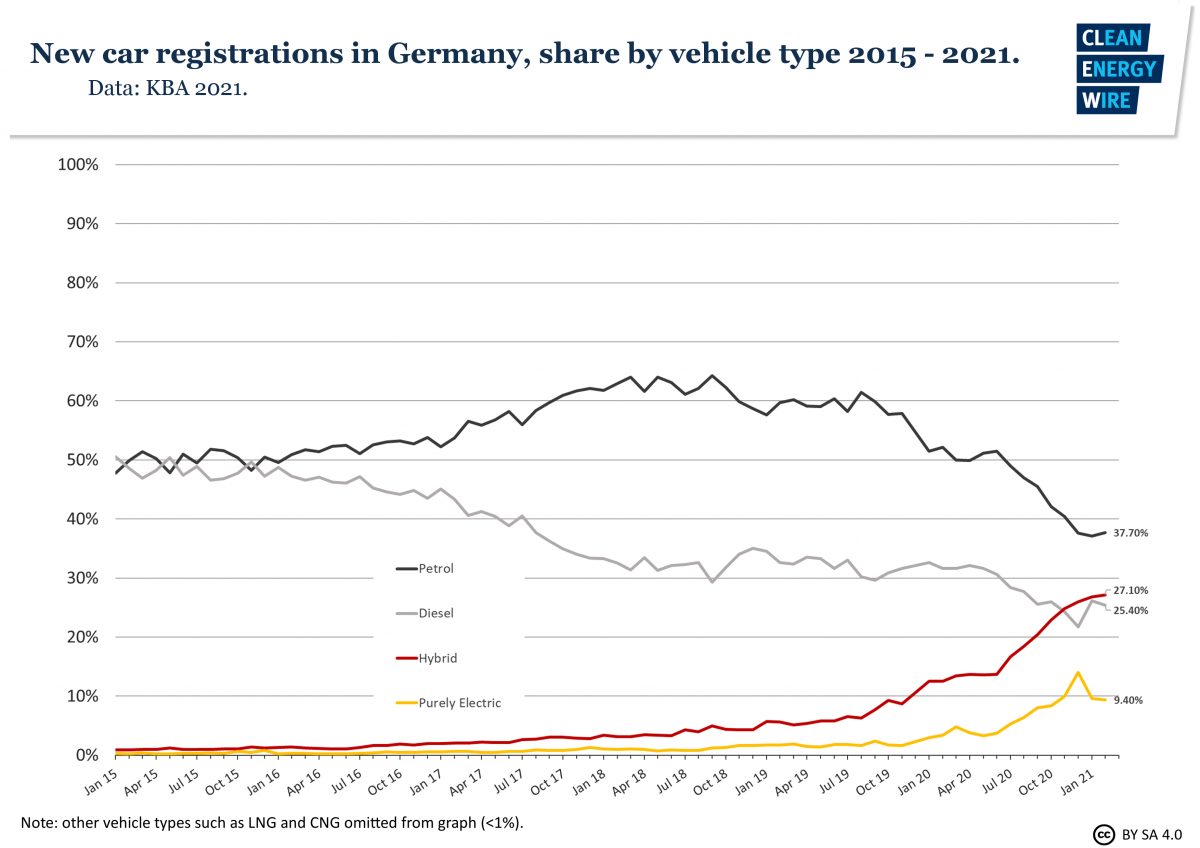Germany should double petrol and diesel prices for new combustion engine cars – industry analyst
Handelsblatt / Clean Energy Wire
Germany should double the price for diesel and petrol fuel to incentivise the switch to electric mobility, writes car industry analyst Ferdinand Dudenhöffer in a guest commentary in business daily Handelsblatt. To avoid public backlash as with the yellow vest protests in France, owners of existing combustion engine cars should get the additional fuel tax refunded, so only the owners of newly registered combustion engine cars would pay full price. Dudenhöffer argues that Germany has a whole raft of support and incentive programmes, which often lead to negative side effects. Doubling the fossil fuel prices would allow to eliminate subsidies, such as the e-car buyer’s premium, and thus “provide a suitable financial and economic framework for the urgently needed shift to more climate-friendly mobility,” he writes.
Germany plans to have seven to ten million electric cars on the roads by 2030, and has introduced many different incentive schemes to get there. Buyers of pure electric vehicles, for example, get a premium of 9,000 euros, and those opting for a plug-in hybrid 6,750 euros. Drivers installing a charging point at home can receive an additional 900 euros. Many carmakers, policymakers and green mobility experts argue that shifting to electric cars is the quickest and most efficient way to lower transport emissions. But the German car industry association VDA and many suppliers still fight for the combustion engine, saying it could be fuelled with climate-friendly synthetic fuels in the future.
Meanwhile, energy industry association BDEW has presented a 10-point-plan with recommendations for e-car charging infrastructure development in Germany. It calls on communities and federal and state governments to make available the necessary land for charging points and speed up permit procedures. BDEW said the charging infrastructure expansion is slowly gaining momentum with now 40,000 public points registered with the organisation, and private charging was also developing well thanks to a government support programme.


